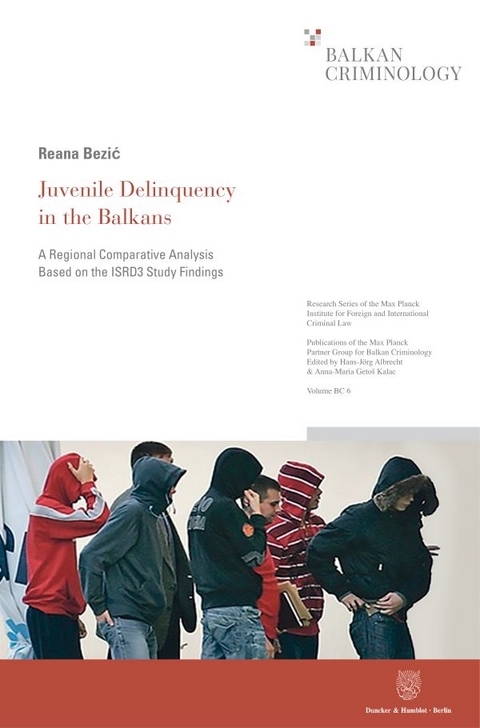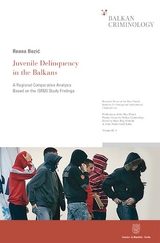Juvenile Delinquency in the Balkans.
Duncker & Humblot (Verlag)
978-3-428-15995-6 (ISBN)
The study presents important empirical evidence for establishing, developing and evaluating prevention programmes, which are an important component of rational, evidence-based crime policies in the Balkans.
Juveniles represent the most important human capital on which societies have to rely in order to achieve sustainable progress and social change. Their delinquency is a complex phenomenon and one of the most challenging criminological and social problems. Throughout the 20th century, criminology has produced numerous studies focusing on aetiological factors and phenomenological characteristics of juvenile delinquency. However, juvenile crime research in the Balkans has remained scarce, with only few empirical studies having been carried out thus far. Such an 'empirical black hole' makes crossnational and comparative criminological research on juvenile crime in the Balkans far overdue.
This volume provides a first comprehensive account of the prevalence and incidence of juvenile crime in the Balkans, based on self-reports in youth populations of five countries of the region: Bosnia and Herzegovina, Croatia, Kosovo, North Macedonia, and Serbia. The analyses focus on differences and common characteristics among the five country samples, involving a total of 8,460 respondents. Based on these findings, further analyses are centered on indicators that might impact the development of juvenile crime. In general, this study is focused on theory-testing and the search for mechanisms that explain juvenile crime in the region. The main theory that was tested is the social control theory.
The study presents important empirical evidence for establishing, developing and evaluating prevention programmes, which are an important component of rational, evidence-based crime policies in the Balkans.
1. Introduction
2. Self-Reported (Juvenile) Delinquency – A Research Summary
Self-Report Research – Main Findings of Self-Report Research – Self-Report Research in the Balkans
3. Research Questions
Phenomenology: Differences in the Extent and Nature of Juvenile Crime in the Balkans – Aetiology: Causes of Juvenile Delinquency in the Balkans – Cross-National Comparison between Countries from the Balkans and Western Europe
4. Methodology
Comparative Research Methodology – Sampling – The ISRD3 Measurement Instrument – Statistics
5. Findings
Descriptive Statistics – Indicators of Juvenile Delinquency in the Balkan Region
6. Conclusion
Descriptive Statistics – Explaining Juvenile Crime in the Balkans
7. Summary
Overview of the Study – Main Research Findings – Future Fields of Research
| Erscheinungsdatum | 14.05.2021 |
|---|---|
| Reihe/Serie | Research Series of the Max Planck Institute for Foreign and International Criminal Law. Series BC: Publications of the Max Planck Partner Group for Balkan Criminology ; 6 |
| Zusatzinfo | 20 Tab., 24 farb. Abb.; XVII, 200 S., 24 farb. Abb., 20 schw.-w. Tab. |
| Verlagsort | Berlin |
| Sprache | englisch |
| Maße | 148 x 224 mm |
| Gewicht | 290 g |
| Themenwelt | Recht / Steuern ► EU / Internationales Recht |
| Recht / Steuern ► Strafrecht ► Besonderes Strafrecht | |
| Schlagworte | Balkans • Bosnien und Herzegowina • Internationales Öffentliches Recht: Strafrecht • Jugendstrafrecht • juvenile crime • Juvenile Delinquency • Kosovo • Kroatien • Republik Mazedonien • Serbien |
| ISBN-10 | 3-428-15995-0 / 3428159950 |
| ISBN-13 | 978-3-428-15995-6 / 9783428159956 |
| Zustand | Neuware |
| Haben Sie eine Frage zum Produkt? |
aus dem Bereich




